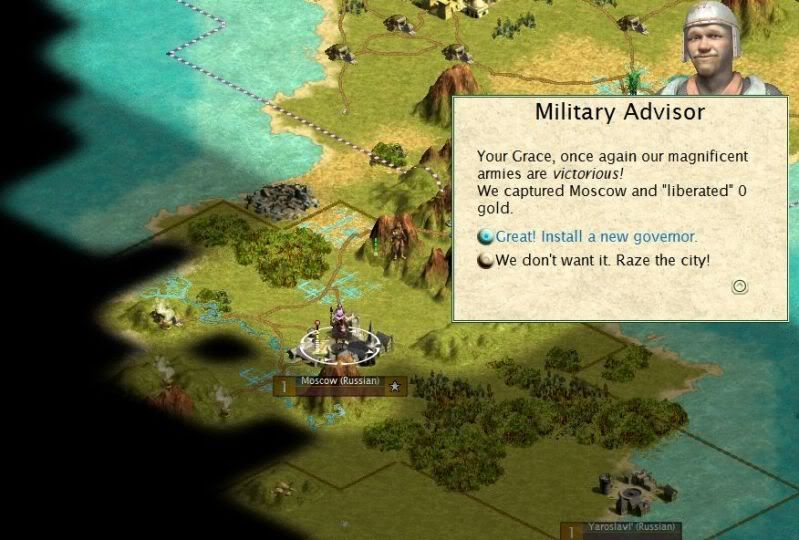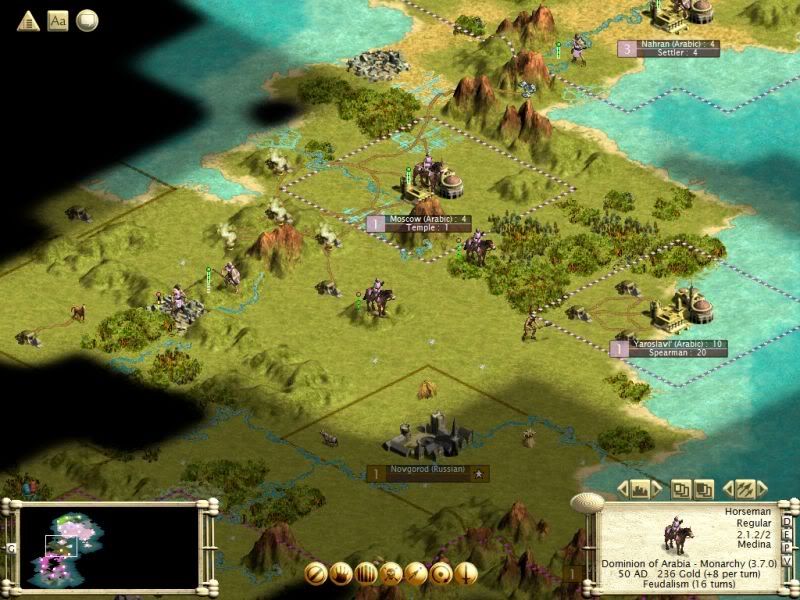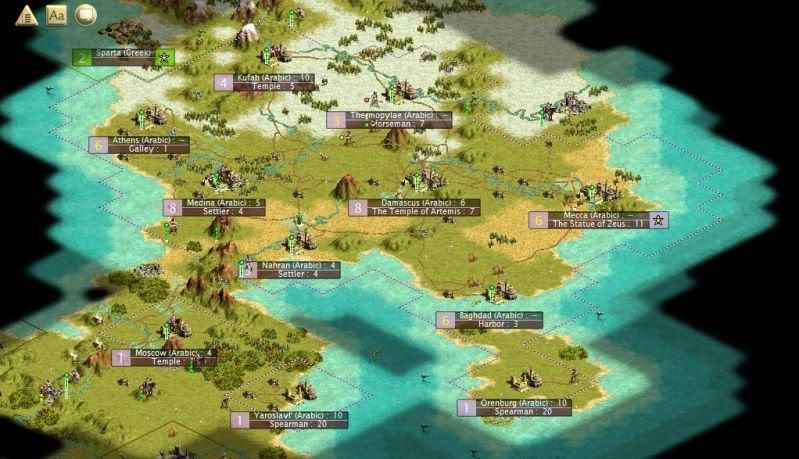Justice tended to be far less partial in Medina than in neighboring cities. The future First Sayyid's influence spread: he undermined nearby cities and spread his rule there. Soon, every kingdom but Mecca swore fealty to him. They called him Mausolous reborn, anticipating that he would unite the Arab people once more. The Sayyid ordered that each city should erect a stele in the center of its marketplace, and sent men abroad to carve his code of laws into the stone. There they would stand, a symbol that no man was above the rule of law. Doing away with the bands of militia typically used by warlords, the Sayyid trained an army of horsemen to serve as both cavalrymen and messangers. Their speed and the spread of a common law united the Sayyid's territory in a way never before seen.
The Meccan chieftans furiously opposed him: in their eyes, only one from Mecca was worthy of leading the Arab people as a whole. They denounced his new ways, rejected that any man of power should bow before stone steles. They decried him as a weakling who sought strength by pandering to the masses: increasingly, the high priests rose against him. His own subordinates were cautious in the face of such forceful opposition: the priests of Mecca held a power over the minds of Arabs everywhere, and if they spoke against the new way, nothing could stop the fall of Medina's new lord.

And so the Sayyid turned to the old ways, sending his troops against the forces of Mecca. He declared total war against the old ways of barbarism: in their place, he would install civilization. Even as his forces met Mecca's on the field of battle, still more troops headed south -- into Russia. Russia's own leaders were far to aggressive in their settling habits for any Arab, but few warlords were willing to risk their armies against a large kingdom. The Sayyid did not share their timidiity.


Katrine fled to Novgorod, where Arab emissaries met her with an offer of peace: if she would surrender a few inconviently placed colonies, technological secrets, and a sizable portion of her income, the rest of Russia would be spared. Terrified that these strangers had dealt her power such a blow, she acquiesced. While Katrine was later assassinated, no one dared challenge the Arab Dominion.

That his forces had sacked Russia, effected the surrender of Russia's colonies bording Arab domains, and defeated the Meccans in combat, proved to the Arabs that this man was one to be reckoned with. Soon all cities bowed to him. Declaring that he was an agent of divine providence, the Sayyid established the first known monarchy. Every city soon became home to a stele bearing his code of laws, and soon his private religion -- the worship of two gods named "Zeus" and "Artemis" -- became widespread. Temples to Artemis rose in every city, each serving the monarchy. Under the rule of the First Sayyid, the Arab Dominion enjoyed flowering prosperity like never before. Cities grew and matured, investing in magnificient architechure that still stands today. Upon his death, the Sayyid was succeeded by his eldest son, who ruled with dignity if not with distinction. Few kings in the Dominion's history could measure up to the Sayyid.


No comments:
Post a Comment